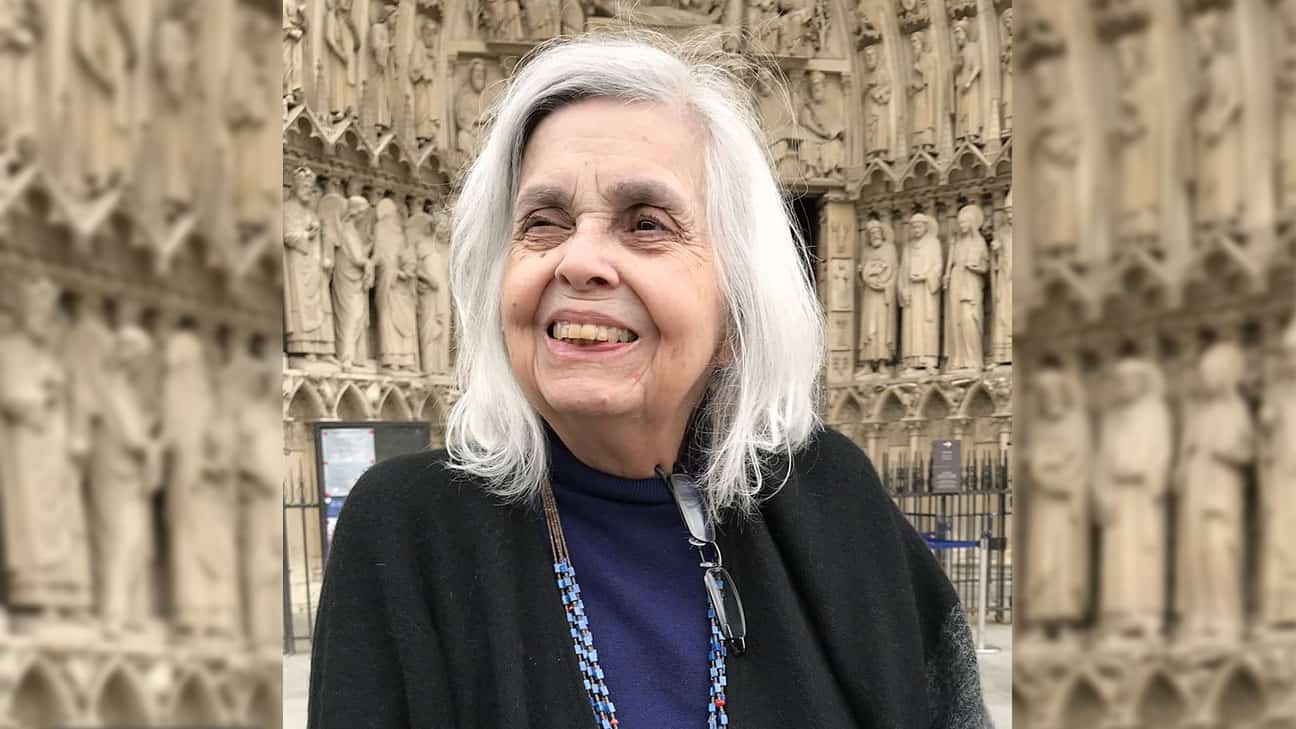
The American Society for Ethnohistory awarded Clara Sue Kidwell, Ph.D., a Lifetime Achievement Award. Kidwell is a Native American academic scholar, historian, feminist and author.
Kidwell earns lifetime achievement award
Published November 1, 2022By Chris Jennings
On September 10, 2022, the American Society for Ethnohistory awarded Clara Sue Kidwell, Ph.D., a Lifetime Achievement Award during its annual meeting in Lawrence, Kansas.
Dr. Kidwell is a Native American academic scholar, historian, feminist and author. Her paternal grandmother, Susie E Thompson-Kidwell, was a Dawes enrollee. She is the daughter of H. Milton and Martha Kidwell and is also of White Earth Ojibwe descent on her mother’s side.
Born in Tahlequah, Oklahoma, in 1941, Kidwell grew up in Muskogee, Oklahoma. In 1959 she graduated from Central High School and attended the University of Oklahoma. As an undergraduate, she represented OU on their College Bowl Team which led to her receiving a fellowship in the history of science after she graduated with her bachelor’s degree in 1963. She earned her master’s degree in 1966 and received her Ph.D. from OU in 1970.
Her path to this lifetime achievement award was not always clear, though. “My parents had it all laid out for me. When I went to college, I was supposed to get a teaching degree, teach high school for a few years, and then get married and have grandkids for them,” said Dr. Kidwell.
That changed when she took some history courses and enjoyed them. It made sense, particularly because of her Choctaw heritage. “That’s what sort of got me into it [ethnohistory] because of my own background in the Choctaw tribe…so that’s kind of a roundabout way of how I got to be an ethnohistorian,” Dr. Kidwell said.
Since then, Dr. Kidwell has had an extensive career with history always at the forefront. Her academic career began at the Kansas City Art Institute in Missouri as an instructor in history from 1968-69, then to the University of Washington, Seattle, as coordinator of publications in the Experimental Education Unit. After receiving her Ph.D., she became an instructor of American Indian studies at Haskell Indian Junior College (now Haskell Indian Nations University).
1972-74 was spent at the University of Minnesota-Twin Cities, Minneapolis, as the assistant professor of American Indian studies. From there, she left to be an associate professor at the University of California at Berkeley, where she worked until 1993, gaining notoriety in research and publications.
She received fellowships from the Newberry Library and the Smithsonian Institute, and in 1980, she was a visiting scholar and associate professor at Dartmouth College. After she departed Berkeley, she took her career in a new direction as the assistant director for cultural resources at the National Museum of the American Indian (NMAI), where she helped move one million different pieces from the George Gustav Heye’s Museum of the American Indian in New York to the NMAI in Washington, D.C.
In 1995, she chose a tenured position at the University of Oklahoma as the director of the Native American studies program. In 2007, Dr. Kidwell started the American Indian Center (AIC) at the University of North Carolina (UNC) with a major goal to reach out to the many eastern tribes, such as the Lumbee and Coharie, who are unable to qualify for federal recognition with the Bureau of Indian Affairs for various reasons.
Under Dr. Kidwell’s leadership, AIC has had success in North Carolina, increasing programs that address education, health and child welfare for these kinds of unrecognized tribes. She has also helped increase the visibility of Native history and culture on the UNC campus.
Dr. Kidwell left her position as director of AIC in June 2011 to assume a faculty position at Bacone College in Muskogee, Oklahoma, which brought her closer to family and the Choctaw Nation. After a short stint at Bacone, she assumed an interim Operations Director role with the Five Civilized Tribes Museum in Muskogee before retiring full-time and moving to her current residence in Owasso, Oklahoma.
In that long and storied career, there is a trend—a call to teach, which partly satisfies some of her parents’ desires for her future. “Teaching kids has kept me in touch with the younger generation. And I think it’s important for especially young Indian people to know where they came from and why things are the way they are for Indian people today,” said Dr. Kidwell.
As with many people who deserve a lifetime achievement award, Dr. Kidwell was surprised to learn of the honor. “I don’t consider that I’ve accomplished a great deal in my lifetime, but to be acknowledged with a lifetime achievement award was kind of a surprise and rewarding at the same time,” said Dr. Kidwell.
Among the many books Dr. Kidwell has authored or co-authored are “The Choctaws: A Critical Bibliography,” “The Choctaws in Oklahoma: From Tribe to Nation, 1855-1970,” “Choctaws and Missionaries in Mississippi, 1818-1918” and “Native American Studies (Introducing Ethnic Studies)”.
The American Society for Ethnohistory’s Lifetime Achievement Award recognizes her as a major figure in the development of American Indian Studies programs and for her overall contributions to the Organization’s mission.

